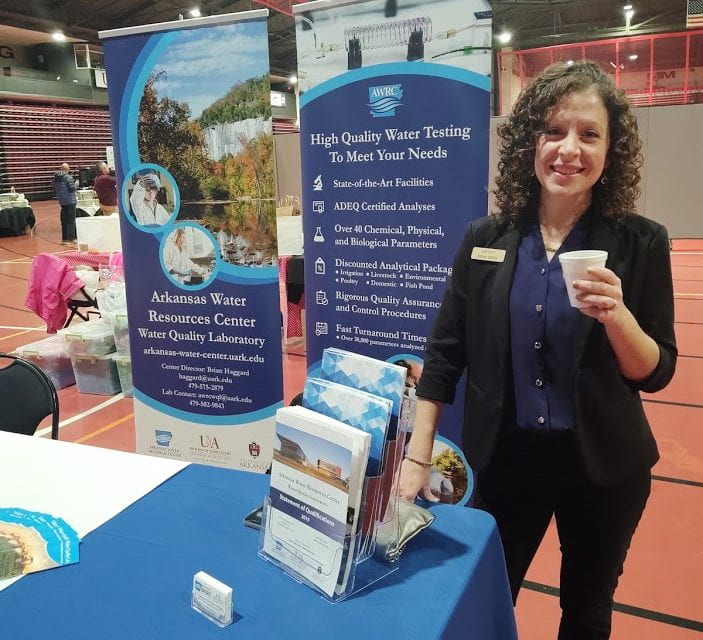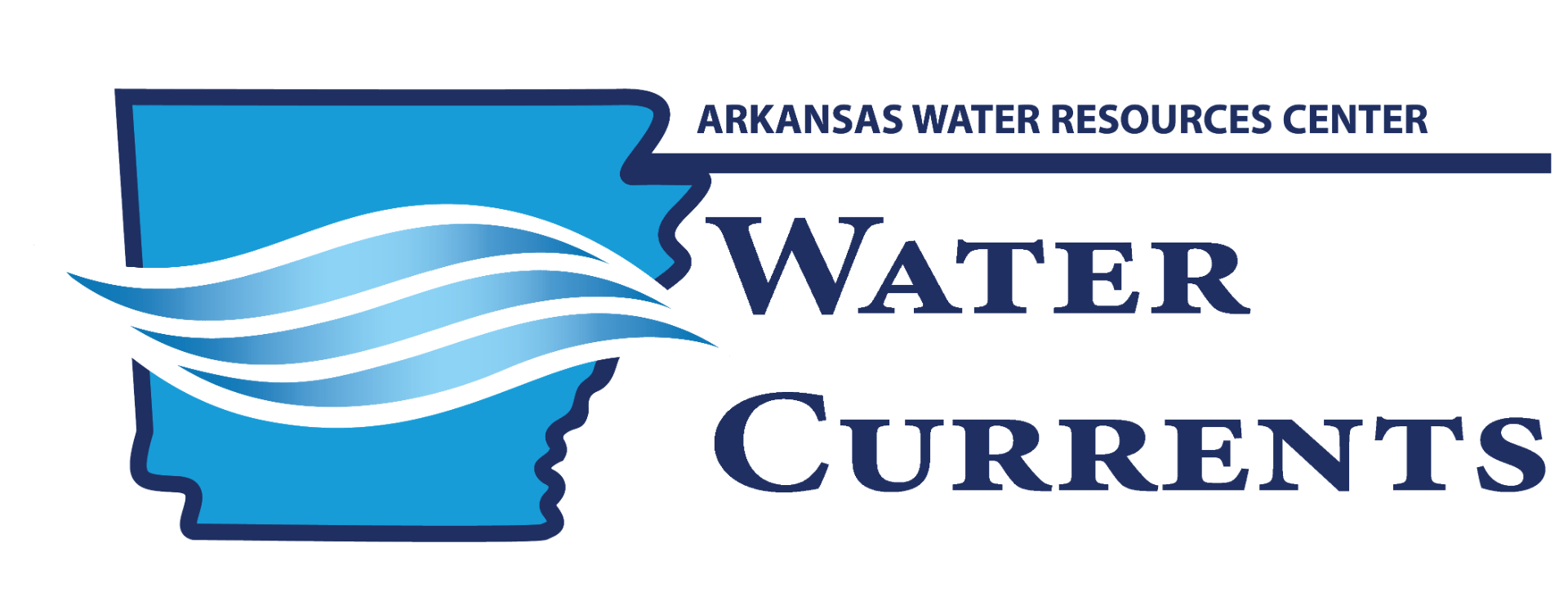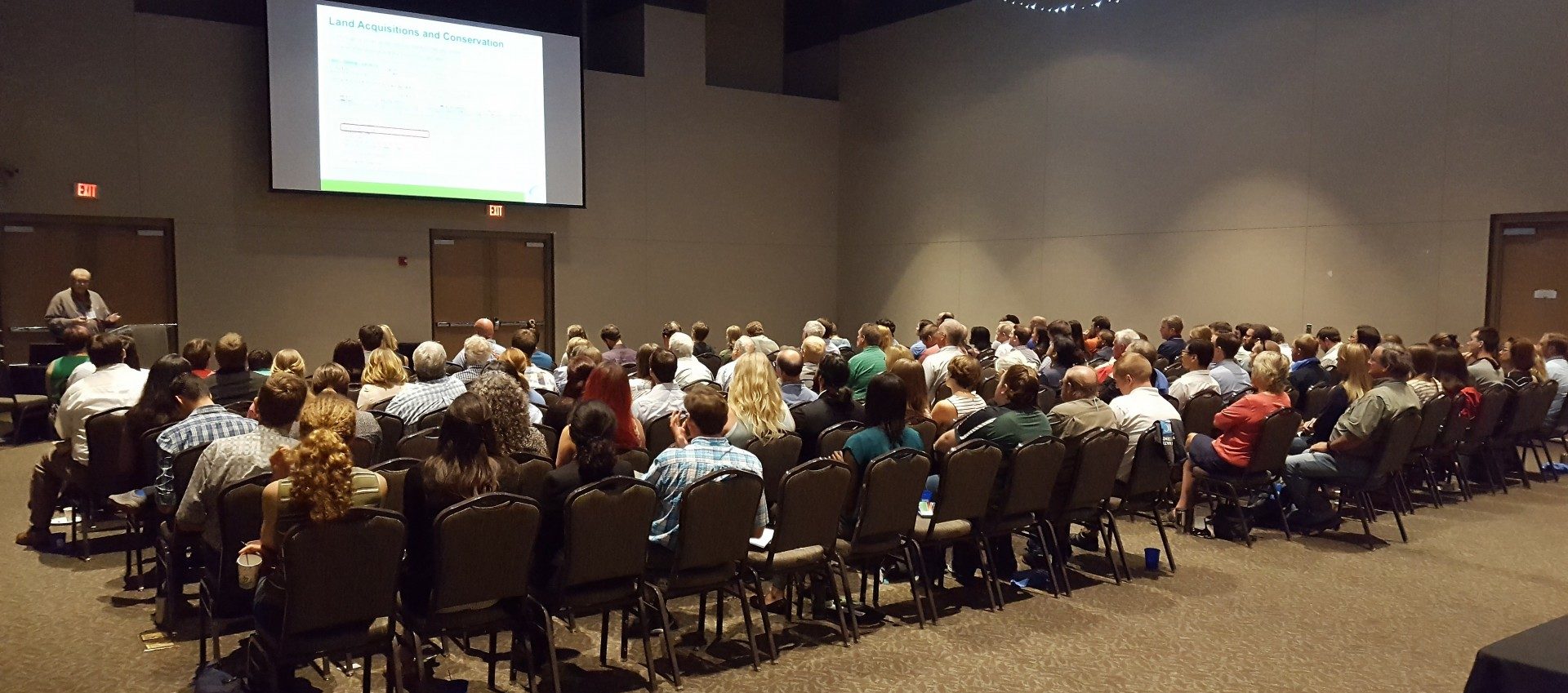
Recap of the 2020 Arkansas Soil and Water Education Conference

This year’s 22nd annual Arkansas Soil and Water Education Conference was successful and informative. AWRC staff attended the event along with hundreds of agricultural producers, researchers, state agency personnel, students, and vendors to discuss the state of soil and water resources and ideas for moving forward.
With the growing population and demand for high-quality food, we find ourselves in ever more difficult situations with our natural resources – soil, water, and energy. Presentations focused on best practices for soil and water management, the potential for on-farm energy generation with solar panels, and the economic benefits of certain conservation and management activities. For example, farmers can receive tax credits for installing solar energy projects, with the potential for those energy savings to pay for the system in as little as 5 or 6 years.
Ed Swaim, with the Bayou Meto Water Management District, gave an introduction to Arkansas water law and explained that with increasing resource scarcity, new laws and policy will need to be developed. A panel of experts discussed the potential of using drones (unmanned aerial vehicles) to help farmers better understand their land, irrigation efficiency, and weed pressures to optimize inputs and maximize yields.
“This conference is a great opportunity to talk with producers and researchers who are primarily focused on row crop agriculture about their water quality, and the value that our services can provide at the AWRC water quality lab,” says Dr. Brad Austin, post-doctoral research associate at AWRC.
Agricultural production is evolving, and the Arkansas Soil and Water Education Conference provides a great venue for stakeholders to discuss successes and failures that will help propel Arkansas agriculture forward.
Image caption: Brina Smith, with the Arkansas Water Resources Center, prepares to exhibit at the 2020 Arkansas Soil and Water Education Conference.









